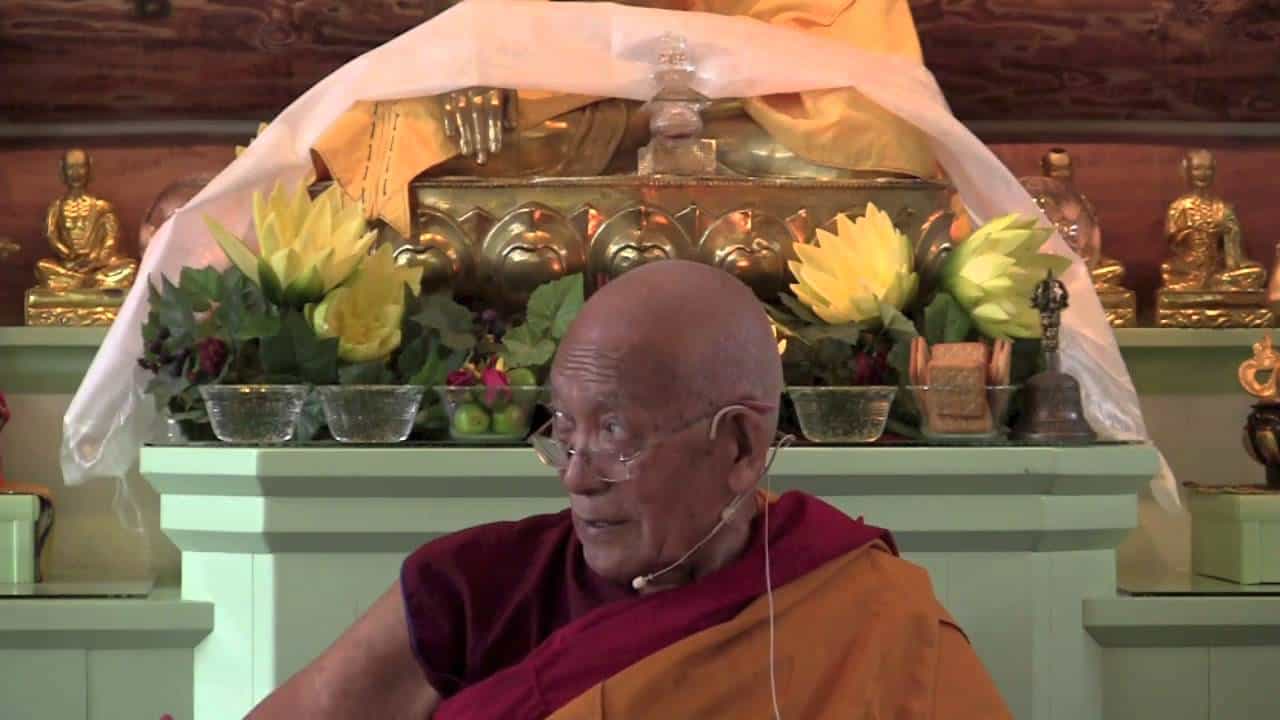Chapter 5: Verses 107-114
Part of a series of teachings on Aryadeva's 400 Stanzas on the Middle Way given on an annual basis by Geshe Yeshe Thabkhe from 2013-2017.
Motivation from Letter to a Friend by Nagarjuna
Even more stupid than one who fills
A jewel-encrusted golden vessel with excrement
Is he who, having been born a human,
Performs evil deeds.
- Making good use of our precious human life to cultivate virtues and avoid non-virtues to bring about liberation and full awakening
Verses 107–114
- Benefits of inspiring others to generate conventional and ultimate bodhicitta
- Physical and mental conduct of a bodhisattva
- Greater compassion and care for people with strong afflictions
- How bodhisattvas gradually lead and teach sentient beings according to their dispositions
- Four ways of gathering disciples
- Faults of not giving encouragement to benefit others
Geshe Yeshe Thabkhe
Geshe Yeshe Thabkhe was born in 1930 in Lhokha, Central Tibet and became a monk at the age of 13. After completing his studies at Drepung Loseling Monastery in 1969, he was awarded Geshe Lharampa, the highest degree in the Geluk School of Tibetan Buddhism. He is an emeritus professor at the Central Institute of Higher Tibetan Studies and an eminent scholar of both Madhyamaka and Indian Buddhist studies. His works include Hindi translations of The Essence of Good Explanation of Definitive and Interpretable Meanings by Lama Tsongkhapa and Kamalasila's commentary on the Rice Seedling Sutra. His own commentary, The Rice Seedling Sutra: Buddha’s Teachings on Dependent Arising, was translated into English by Joshua and Diana Cutler and published by Wisdom Publications. Geshela has facilitated many research works, such as a complete translation of Tsongkhapa’s The Great Treatise on the Stages of the Path to Enlightenment, a major project undertaken by the Tibetan Buddhist Learning Center in New Jersey where he teaches regularly.


